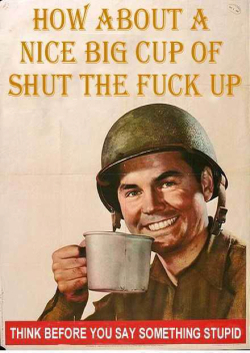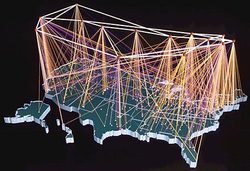Freedom2Connect
This Week’s Clue: Is Cringely on Crack?
By engaging in a snark attack, rather than charging alongside on the issues, Cringely shows great weakness, historic weakness. He...
Read moreThis Week’s Clue: Off the Grid
Politics has succeeded, in this decade, in stopping Moore’s Law dead in its tracks. The preference of the American Administration...
Read moreThis Week’s Clue: Internet Past, Present and Future
Enshrine these Internet values in law and you can have growth. Fail to do so, out of fear, and you...
Read moreThis Week’s Clue: Olmstedism
The following, part of my free weekly e-mail newsletter, A-Clue.Com, is being reprinted at Always On next week as a...
Read moreFreedom2Connect: Great Googly-Moogly
The final speaker at Freedom2Connect was Chris Sacca. Sacca is the head of special initiatives for Google. GoogleChris SaccaHead of...
Read moreFreedom2Connect: Reed Hundt
A highlight of Freedom2Connect's final afternoon was an appearance by Reed Hundt. Hundt was chairman of the FCC from 1993-1997,...
Read moreFreedom2Connect: Ray Gifford and Gigi Sohn
The last afternoon of Freedom2Connect opened with a political panel featuring Ray Gifford, who heads the Progress & Freedom Foundation,...
Read moreFreedom2Connect: The Muni Tsunami
At Freedom2Connect, it was clear that attendees preferred the idea of competition from WiFi and open spectrum to any legislation...
Read moreFreedom2Connect: Rick Boucher
Rick Boucher, a Democratic Congressman from Virginia, has become one of the more knowledgeable Democrats on tech issues over the...
Read moreFreedom2Connect: Dave Hughes
Dave Hughes is an Internet legend. A career military man from Colorado Springs, he got involved in Internet issues over...
Read more











